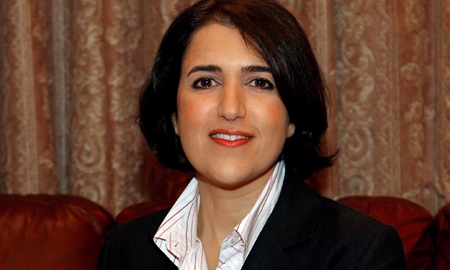
What goals would the KRG like to achieve as it continues to move forward in the process of achieving greater growth and socio-economic development?
We want to give our people a better life. We can do that by making sure that our region is secure. I think we have done that successfully. Beyond that, we want to create prosperity and wealth for our people. The prosperity is coming, and the security is there. We want to give our people better health care, education and access to the rest of the world. We want to have good relations within Iraq, and we want to have good relations internationally, with key countries like Britain and the US, as well as other countries across Europe and the region.
In terms of investment, what are Kurdistan’s competitive advantages?
Kurdistan is a forward-looking, democratic and secular Muslim society. We have an extremely investor-friendly investment law – many companies have said it is the most friendly that they have seen. Kurdistan is very stable. This is especially relevant in the Middle East. Here, we have had a peaceful transfer of power, and peaceful general elections. It may not be as mature as a Western democracy, but we are deepening and strengthening our democratic credentials every single day.
Kurdistan is a forward-looking, democratic and secular Muslim society. Bayan Sami Abdul Rahman, |
What are your main areas of focus for the economy?
Oil and gas is a big sector for us. It is not just exploration; there are also oil and gas services. It is definitely an area to watch. It is a sector that is booming in Kurdistan, with both local and international companies increasingly coming to the region to support the big explorations.
Agriculture is an area we are focusing on. Kurdistan, after all, was the breadbasket of Iraq. Our Ministry of Agriculture is trying to give our fruit-growers and wheat-growers an advantage against all of the very cheap imports.
Tourism is another priority. We can focus on two key areas. First, we have heritage products like our biblical sites. Some of the great prophets of Judaism, Islam and Christianity are buried in Kurdistan. We have Roman sites and the place where the battle of Alexander the Great took place. We have the citadel in Erbil, which goes back 7,000 to 8,000 years, making it the longest continuously inhabited city in the world. Second, we have adventure tourism. By that, I mean we have mountains and rivers where we can promote all sorts of nature sports like mountain climbing, river rafting and skiing. Already, Kurdistan is a holiday destination within Iraq. Even people from neighbouring countries come to spend their holidays.
I think minerals will be the next big thing. We need to pass a minerals law. I believe that the Ministry of Natural Resources is working on a draft. First, we need to pass the law on how minerals can be exploited. I think there is some confidence that we do have a fair amount of minerals that would attract a lot of international attention.
Beyond these areas, there is health care, education and ICT. Already, two of the biggest Iraqi telecoms companies are Kurdish (Korek and Asiacell). We have a reasonable health care system but there is still significant room for improvement. We are reforming the education sector. We had the revision of the curriculum. We have introduced English at the youngest age possible and we have encouraged the development of both private and state schools.
How would you describe Kurdistan’s relations with the Iraqi government?
We are a part of Iraq, and in 2003, we decided to voluntarily remain as part of Iraq, which is now inclusive and democratic. This is what we are committed to. We are not willing to be a part of an Iraq that is under a dictatorship. It was under a dictatorship that our people suffered genocide. While Iraq remains on the path to federalism, democracy and unity, we will be part of it.
0 COMMENTS